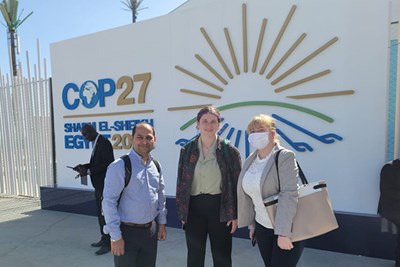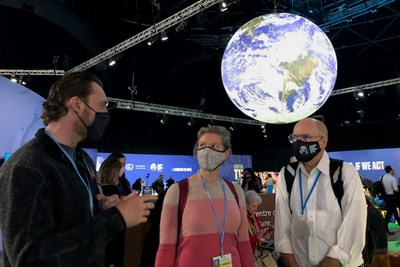Summit in Dubai Gives Students Global Perspective on Climate Change
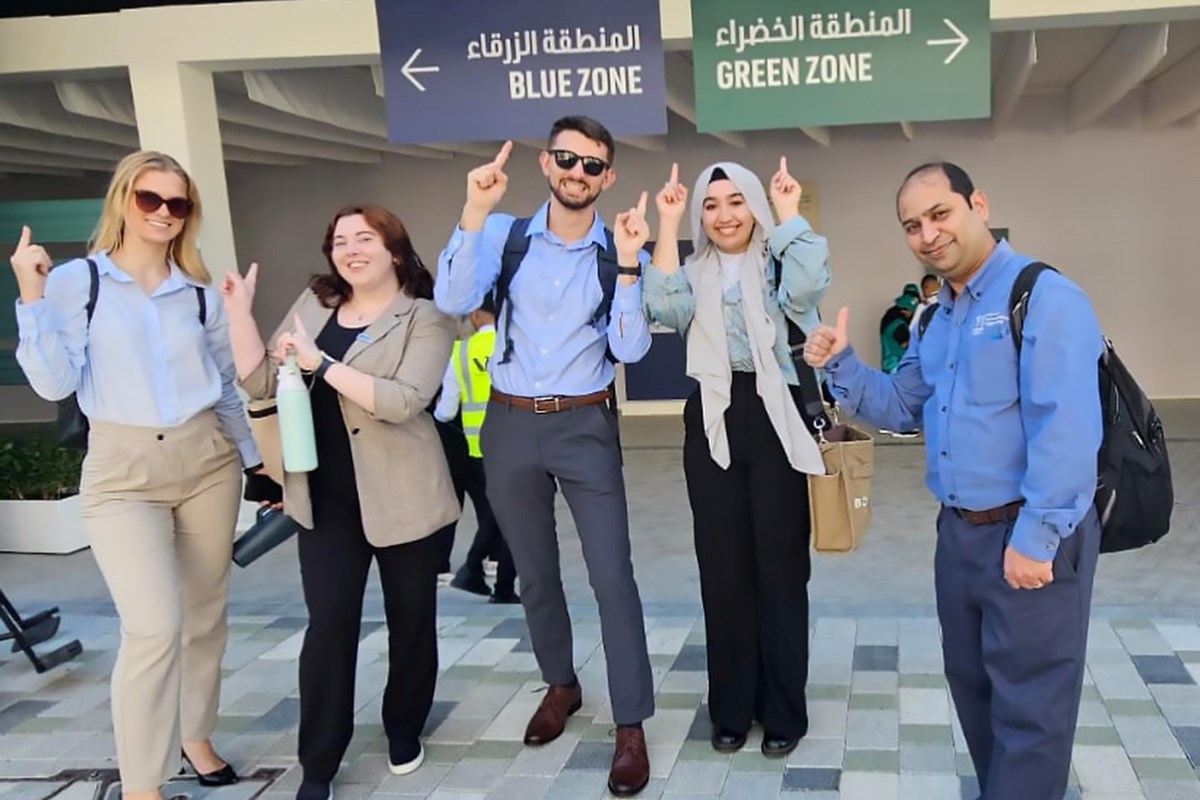 Image by Courtesy
Image by Courtesy
01/09/2024
By Brooke Coupal
In the futuristic city of Dubai, UMass Lowell students expanded their climate change knowledge on a global scale.
Junior William Lefebvre, senior Madison Feudo, recent graduate Aya Oulal ’23 and master’s student Victoria Wisniewski ’23 traveled to the United Arab Emirates alongside Civil and Environmental Engineering Assoc. Teaching Prof. Raj Kumar Gondle to attend COP28, the annual United Nations climate summit. Ph.D. student Zita Ngagoum Ndalloka attended the two-week conference virtually.
“Every COP is a piece of history, and we got to be a part of that history,” says Oulal, who completed her bachelor’s degree in environmental science in the week following the conference’s conclusion.
The students were the only delegation from a public university in Massachusetts. Their trip was funded by the Rist Institute for Sustainability and Energy.
“Taking the financial hurdle out of the picture allowed us to focus on the conference,” says Lefebvre, an environmental science major with a concentration in sustainability. “I felt very honored to represent the university at such a high level.”
Lessons Learned
COP28 involved nearly 200 countries sharing their climate action strategies and goals while negotiating the next steps toward mitigating climate change. With roughly 85,000 participants and dozens of daily events, the conference could become overwhelming, but the students say they felt prepared thanks to a directed study course taught by Sociology Assoc. Teaching Prof. Thomas Piñeros Shields, who attended COP26 in Glasgow, Scotland, as part of the UMass Lowell delegation.
“The class was the best thing that we could have taken, because it taught us what to expect at COP and helped us figure out what we wanted to learn so that we could make the most out of the experience,” says Wisniewski, who is working on a master’s degree in environmental studies with an atmospheric science option.
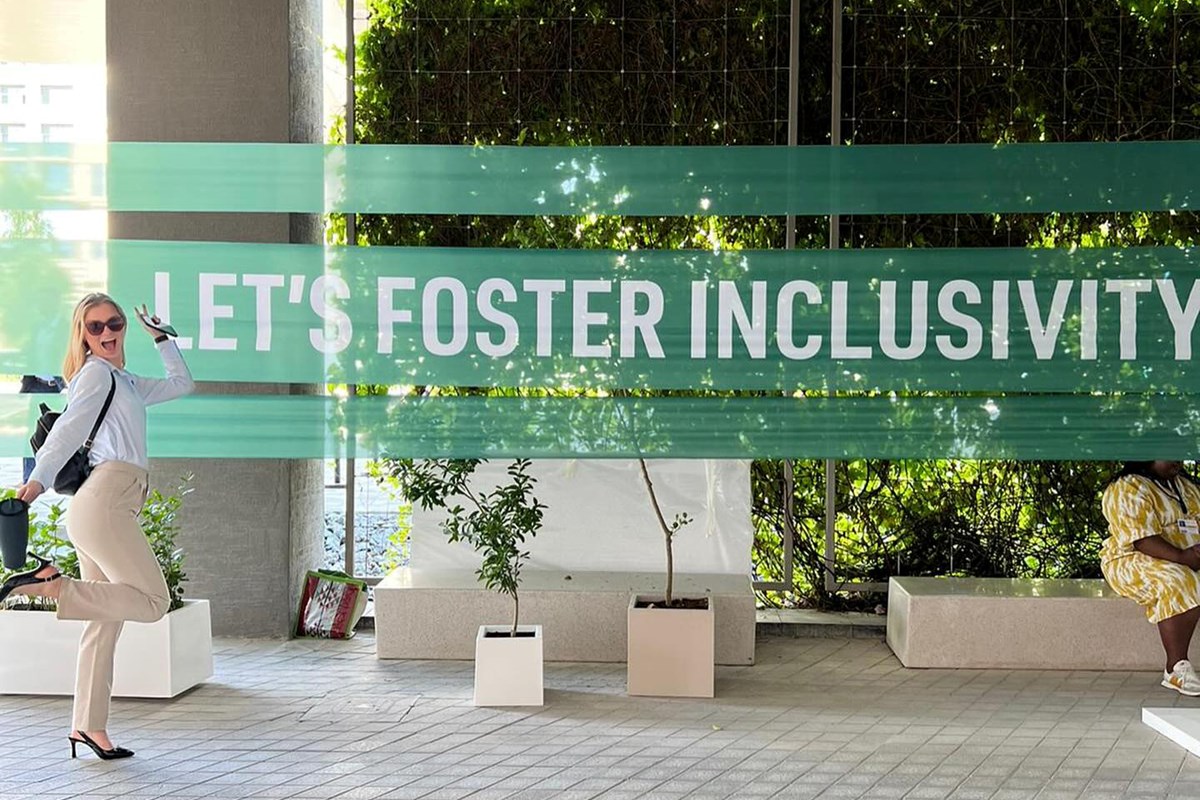 Image by Brooke Coupal
Image by Brooke Coupal
As a freelance meteorologist for Maine’s WMTW-TV news station, Wisniewski wanted to learn how to better communicate information about climate change to the public.
“I want to be the voice for climate science,” she says. “COP28 helped me gain a stronger grasp on the topic.”
Feudo, a peace and conflict studies major, went to COP27 in Egypt as part of the UMass Lowell delegation and discovered the many areas that climate change touches, from youth and women to health and agriculture. She further expanded her knowledge during COP28.
“My main motivator (for returning to COP) was this sense of ‘I’m not finished here.’ There is so much more that I can do,” she says.
Lefebvre and Oulal were excited to see a day of COP28 dedicated to the built environment, which is a topic they’ve researched at UMass Lowell. They sat in on a plenary session, at which representatives from each nation either expressed their need for resources for sustainable development or explained how they’re adapting their man-made structures and features in urban centers to mitigate climate change.
“There were small nations with limited financing saying how they don’t contribute to climate change but are impacted by it and are asking fossil fuel-emitting countries and industrialized nations to stop emitting,” Lefebvre says. “It was really hard to hear some of these nations begging for help.”
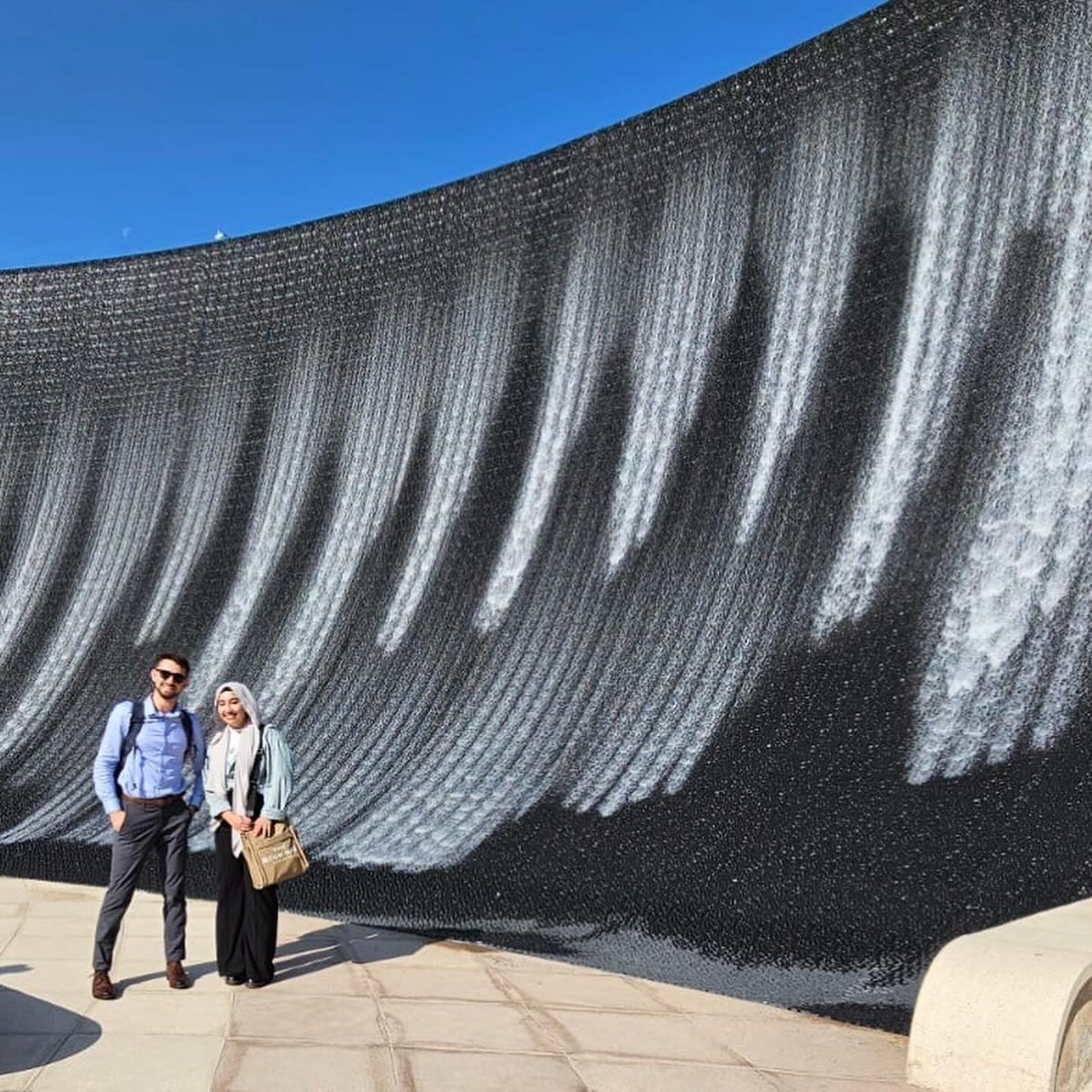 Image by Courtesy
Image by Courtesy
By the end of COP28, the nearly 200 countries in attendance pledged to move away from fossil fuels, which the United Nations Environment Programme called a “breakthrough.”
Oulal says this plenary session and other COP28 events helped her gain a more global perspective on climate change.
“There was a lot of representation from different countries, so I got to learn firsthand about the physical and social impacts of climate change on an international level,” she says.
Ngagoum Ndalloka, who studies energy engineering, virtually watched COP28 sessions from Lowell. With Dubai’s nine-hour time difference, that often meant waking up during the early morning hours to catch the events that piqued her interest.
“The spirit of COP28 was very encouraging and motivating, because you could see that everyone was engaged,” says Ngagoum Ndalloka, who hopes to attend COP29 in person as a member of the UMass Lowell delegation.
Action Needed
The students took the newfound knowledge that they gained at COP28 and brought it back with them to UMass Lowell.
Feudo has been increasing climate change awareness with her friends and professors by sharing comprehensive reports that United Arab Emirates researchers went over during the conference. The reports look at how climate change impacts food insecurity and women.
The students also talked about their COP28 experience while in Dubai with the radio station WGBH and wrote an opinion piece for the Boston Globe before departing for the conference.
Ngagoum Ndalloka has been inspired to continue her research on ways to easily recycle solar panels, which typically have a lifespan of up to 30 years.
“To keep the environment sustainable, we must be able to recycle solar panels and not just dump them in landfills,” she says. “I need to keep working on my research to see how I can help achieve international climate goals.”
COP28 allowed the students to develop connections with like-minded young adults. In Dubai, they also met with members of Sen. Ed Markey’s team and representatives of National Grid. Before the conference, the students joined a panel with local policymakers to discuss climate action in Massachusetts.
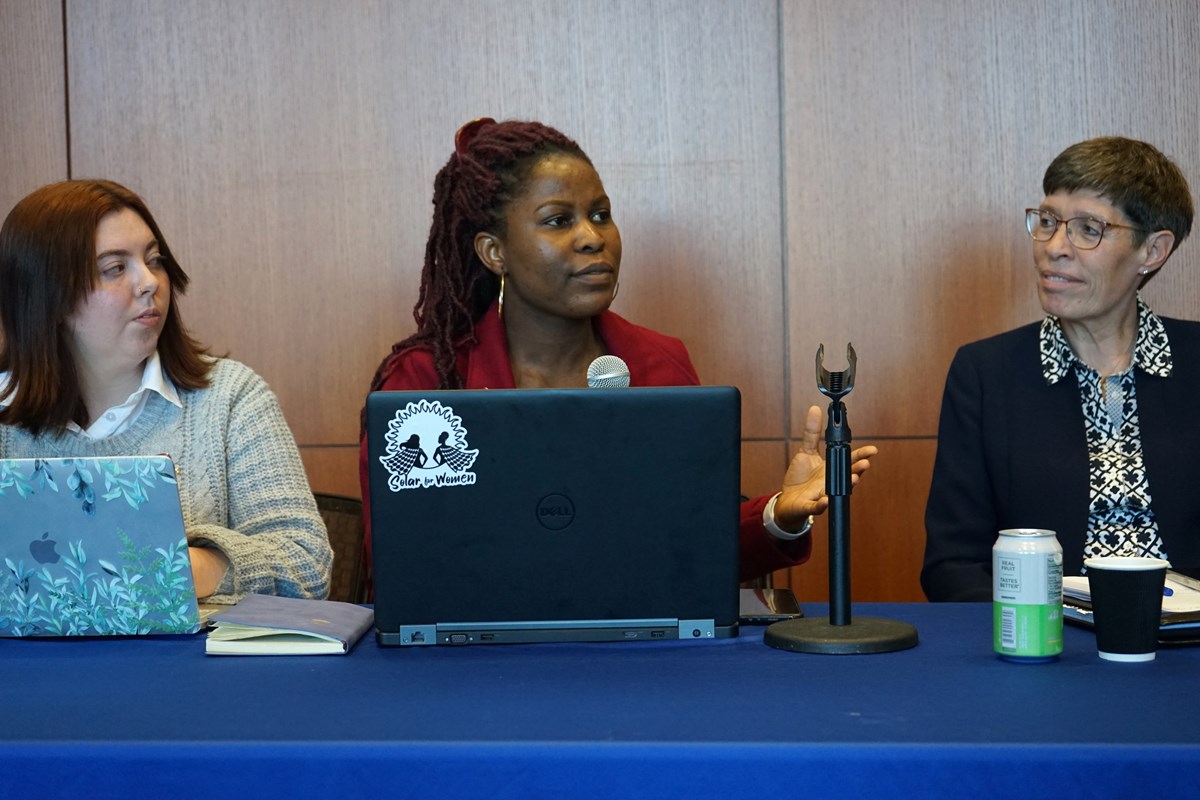 Image by Brooke Coupal
Image by Brooke Coupal
“We are at a stage now where more action needs to take place,” Lefebvre says. “For UMass Lowell students, it’s important to turn your education into action.”
Lefebvre encourages students to reach out to lawmakers about climate change, as they are the ones who can set policies aimed at alleviating the climate crisis.
“A lot of local officials are on Instagram, and you can just direct-message them and say, ‘I want to see this. What are you doing about this? How can I help out?’” he says. “Local policymakers are important because if you start something with them, they can gather momentum and push the action forward.”
Feudo adds that it’s important for lawmakers to welcome younger voices into conversations about climate change.
“We have a lot to bring to the table, so let us have a seat,” she says.

